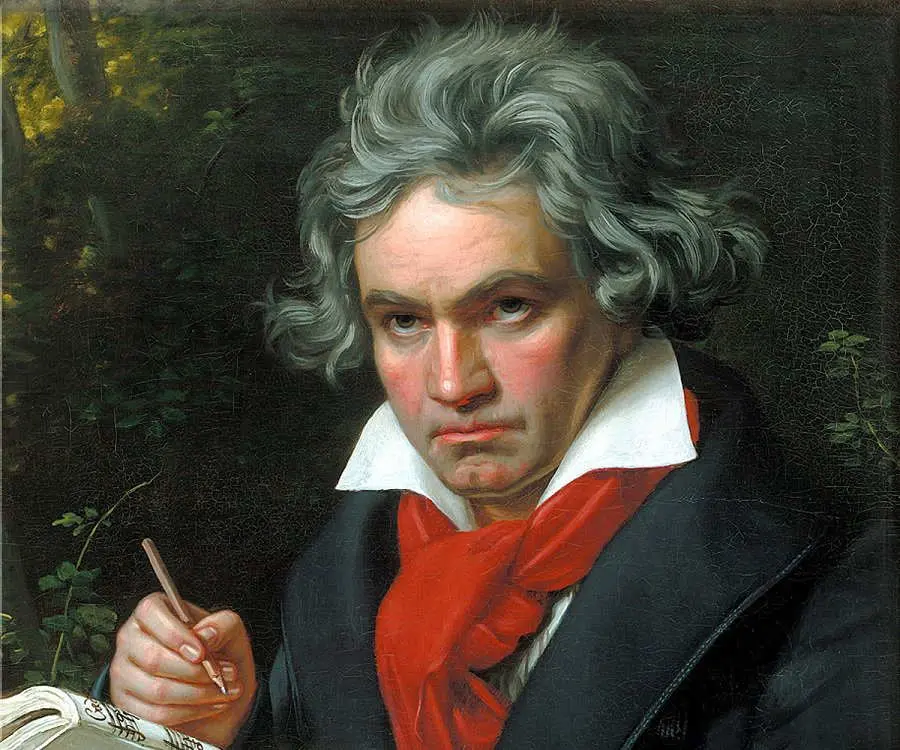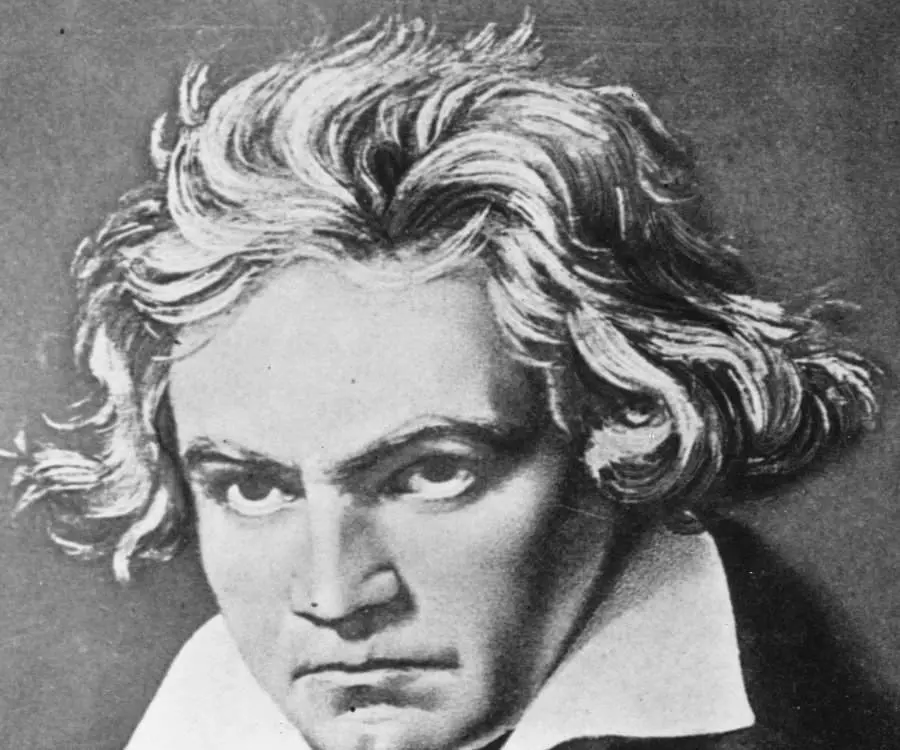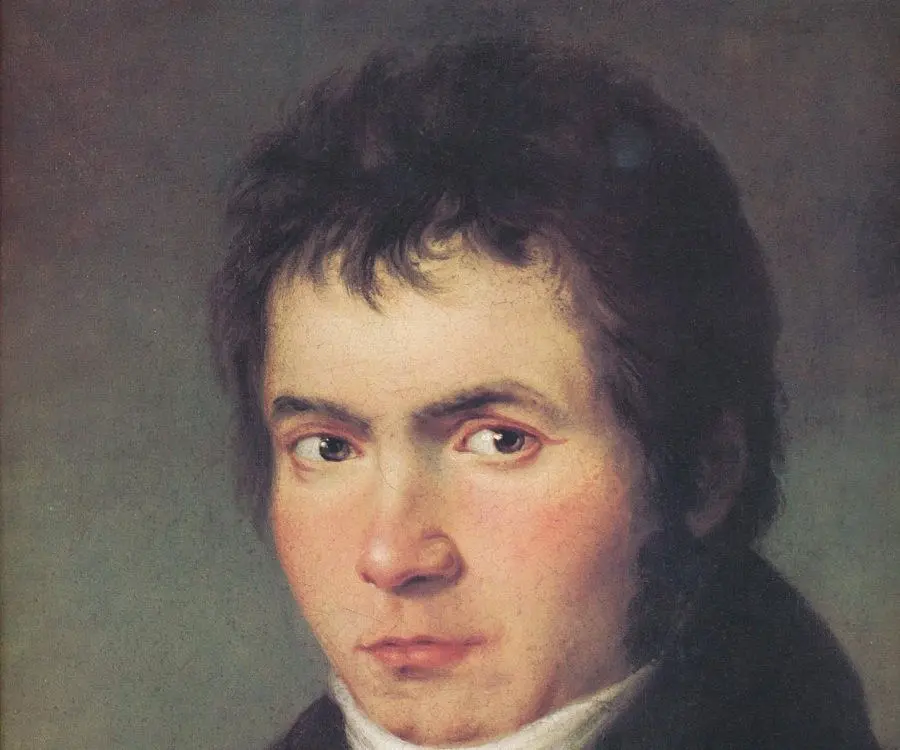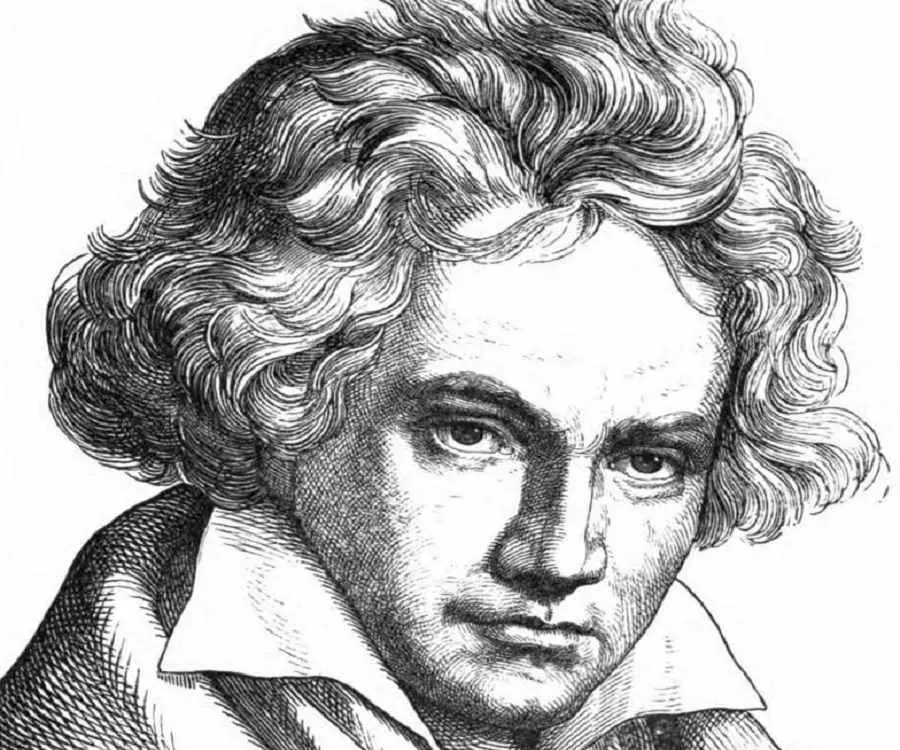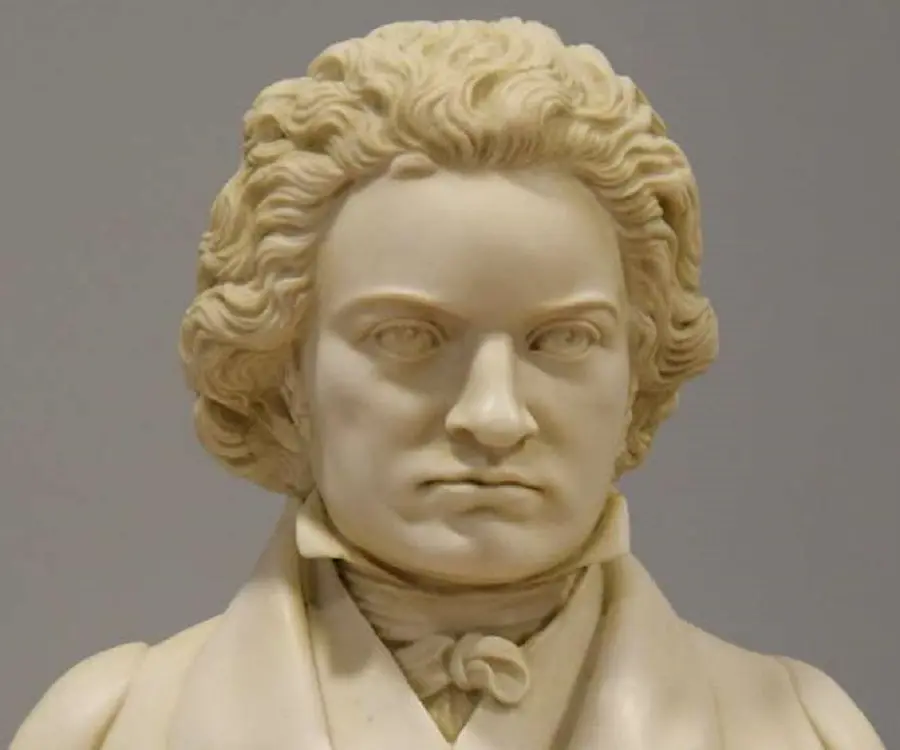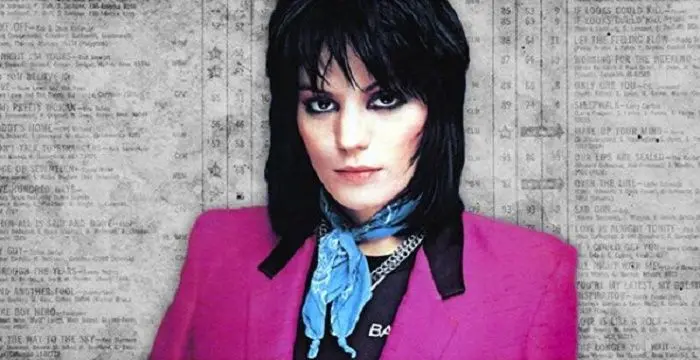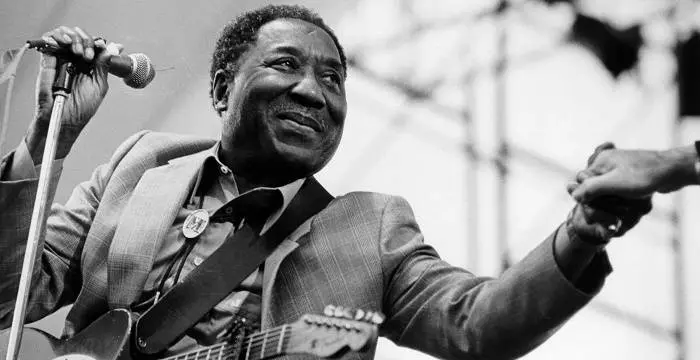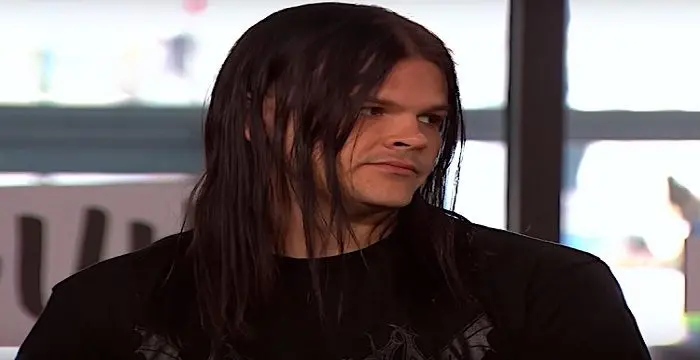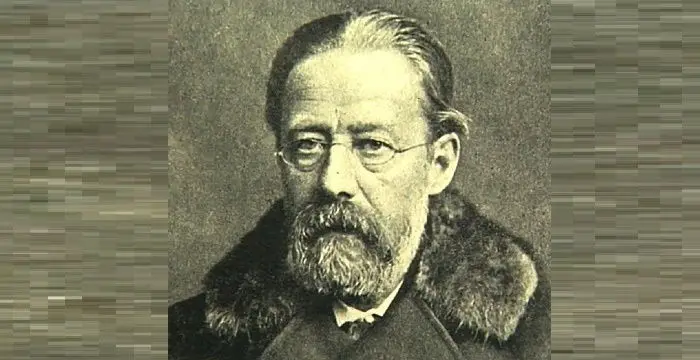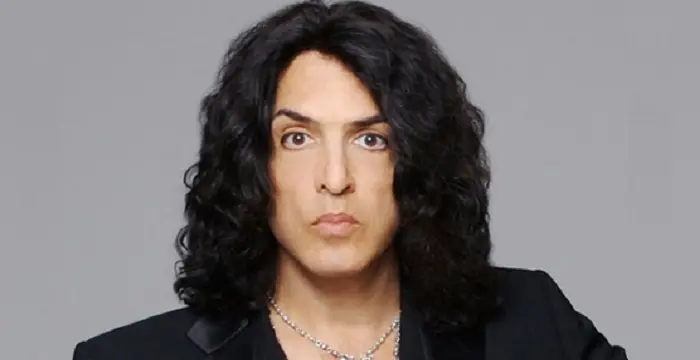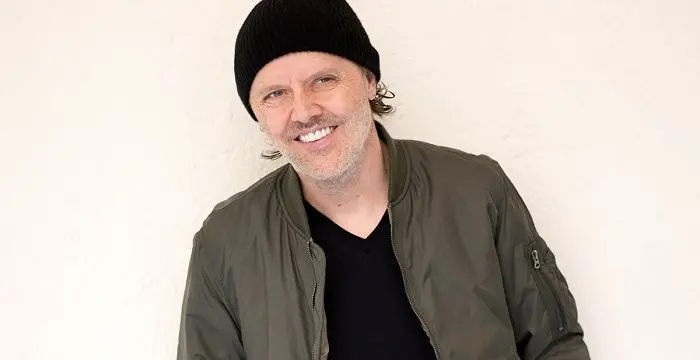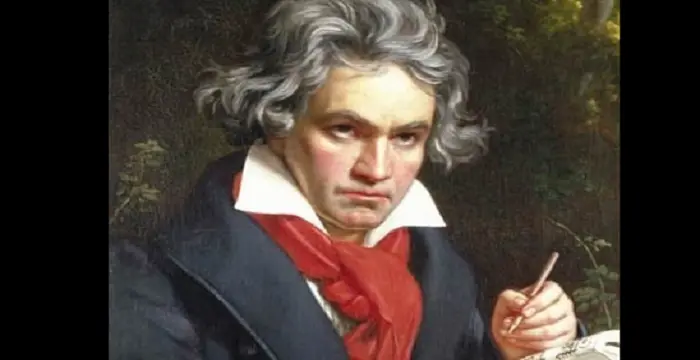
Ludwig van Beethoven - Left Handed, Facts and Childhood
Ludwig van Beethoven's Personal Details
Ludwig Van Beethoven was one of the greatest composers the world has ever had
| Information | Detail |
|---|---|
| Birthday | December 16, 1770 |
| Died on | March 26, 1827 |
| Nationality | German |
| Famous | Left Handed, Musicians, Composers |
| Siblings | Anna Maria Francisca van Beethoven, Franz Georg van Beethoven, Johann Peter Anton Leym, Kaspar Anton Karl van Beethoven, Ludwig Maria van Beethoven, Maria Margarita van Beethoven, Nikolaus Johann van Beethoven |
| Birth Place | Bonn, Germany |
| Religion | Catholic |
| Diseases Disabilities | Hearing Impairments and Deafness |
| Gender | Male |
| Father | Johann van Beethoven |
| Mother | Maria Magdalena Keverich |
| Sun Sign | Sagittarius |
| Born in | Bonn, Germany |
| Famous as | Composer |
| Died at Age | 56 |
// Famous Left Handed
Aidan Gallagher
Aidan Gallagher is a famous American child actor. Check out this biography to know about his childhood, family life, achievements and fun facts about him.
Nicole Kidman
Nicole Kidman is one of the most talented actors that the Hollywood film industry can boast of. Browse through this biography to get detailed information regarding her life, childhood, profile & timeline
Neil Armstrong
Neil Armstrong was the first man ever to land on the Moon. Explore this biography to know in details about the childhood, life, profile and timeline of this celebrated personality.
Ludwig van Beethoven's photo
Who is Ludwig van Beethoven?
Known as the Shakespeare of Music, Ludwig Van Beethoven was one of the greatest composers the world has ever had. He was one among the pioneers of instrumental music in European culture, and played a crucial role in the development of tonal music. Though acquired deafness restricted him from actively involving in social life, it never trammelled his creativity. During the premiere of his final masterpiece, ‘Ninth Symphony’, Beethoven had to turn around to view the clapping of the audience as he had become totally deaf by then. However, despite his loss of hearing, he grew as a colossus of music, whose fame continues to be unbeaten even now. Influenced greatly by Mozart and Haydn, he enriched his style with the emotional power of romanticism. The intricacy and vastness of his works went much beyond the age, baffled his contemporaries and continues to mystify the professionals and later audiences. His operas, symphonies and sonatas are still sung and performed all over the world.
// Famous Composers
Emina Jahović
Emina Jahović Sandal is a Serbian model, actress and singer-songwriter. Know more about her childhood, life, career, achievements and timeline in this biography.
John Denver
John Denver, a famous American singer-songwriter and activist, is remembered for songs like Take Me Home, Country Roads and Annie's Song. To know more about his childhood, career, profile and timeline read on
Joan Jett
Joan Jett is an American rock singer, musician, composer, actress, and record producer. This biography profiles her childhood, family, personal life, career, etc.
Childhood & Early Life
Ludwig van Beethoven was born into a musical family in Bonn. Although there is no record about it, most scholars accept 16 December 1770 as his date of birth; one reason being that, his family as well as his teacher, Johann Albrechtsberger, always celebrated his birthday on this day.
The church records at the parish of St. Regius also show that Ludwig van Beethoven was baptized on 17 December, 1770. Since children at that time were baptized a day after their birth, it corroborates the assumption that he was born on 16 December 1770.
His father, Johann van Beethoven, was the son of Ludwig van Beethoven, the Kapellmeister at the court of the Elector of Cologne. Later he was appointed a tenor in the same establishment. To augment his income, he also provided keyboard and violin lessons; but was better known for his alcoholism.
His mother, Maria Magdalena nee Keverich, was previously married to Johann Georg Leym, who died when she was nineteen years old. Their son, Johann Peter Leym, also died in infancy.
Maria Magdalena had seven children with her second husband, Johann van Beethoven, out of which Ludwig van Beethoven was born second. As his elder brother, also named Ludwig van Beethoven, died in infancy, he became the eldest surviving child.
Among his five younger siblings, only two brothers, Kasper Anton Karl Van Beethoven and Nicholas Johann Van Beethoven reached adulthood. Another brother, Franz Georg van Beethoven and two sisters Anna Maria Francisca van Beethoven and Maria Margaretha Josepha van Beethoven died in infancy.
Music Training
Ludwig van Beethoven began his music training under with his father, learning clavier and violin from him, from the age of five. However, the experience was not at all a happy for the young boy, who was regularly flogged and locked in the cellar for slightest mistakes.
Even if he hesitated, his father, who wanted to make another Mozart out of him, would beat him up brutally, yelling he was an embarrassment to the family. Weeping, the boy would continue to play while standing on a tool to reach the keys.
Apart from studying music from his father, he also took lessons from Tobias Friedrich Pfeiffer, a family friend, who would often drag him out of his bed in the middle of the night to practice keyboard. Another important teacher during this period was Gilles van den Eeden, local church organist.
On March 26, 1778, Beethoven gave his first public performance at Cologne. Although by then he was seven years old his father declared him to be six because Mozart gave his first performance at the same age.
Sometime now, he was admitted to a Latin grade school called Tirocinium. He was an average student, poor in spelling and sums, which led to the belief that he might have been suffering from mild dyslexia. He had himself said "Music comes to me more readily than words."
In 1781, he was withdrawn from school to study composition with court organist, Christian Gottlob Neefe. In 1783, with Neefe’s help, Beethoven wrote his first ever composition, later called ‘WoO 63 (Werke ohne Opuszahl or Works without opus number).
Also in 1783, he composed three piano sonatas, entitled ‘Kurfurst’, which he dedicated to the Elector Maximilian Friedrich. Impressed, the Elector subsidized the young man’s musical studies.
Beginning a Career in Music
By 1784, his father’s alcoholism deteriorated to such an extent that he could no longer support his family. Therefore, at the age of fourteen, Beethoven started his career, successfully applying for the position of the assistant organist at the court chapel, receiving a modest salary of 150 florins.
By 1787, the Elector sent Beethoven to Vienna; possibly to study with Mozart. But within two weeks of his leaving home his mother fell seriously ill, compelling him to return home. His mother died soon after and with that his father went deeper into alcoholism.
Ludwing van Beethoven now had to take care of his brothers and run the household, which he did by giving music lessons to the children of late Joseph von Breuning, slowly acquiring other wealthy pupils. Very soon the Breuning mansion became his second home.
In 1788, at the house of von Breuning, Beethoven first met Count Ferdinand von Waldstein. Belonging to Vienna’s highest aristocracy, he not only yielded tremendous influence, but also loved music. Very soon, he became one of Beethoven’s lifelong friends and a financial supporter.
In 1790, Beethoven received his first commission, possibly on the recommendation of Neefe, writing two Emperor Cantatas (WoO 87, WoO 88) on the death of Holy Roman Emperor Franz Joseph II and accession of Leopold II. However, they were not performed at that time, remaining lost until 1880.
From 1790 to 1792, he composed number of pieces, most of which are now listed under WoO. Also in late 1790, Beethoven was introduced to Joseph Haydn, when the master came to Bonn on way to London. They again met in Bonn in 1792 on his return trip to Vienna.
In Vienna
In November 1792, sponsored by Count Ferdinand von Waldstein, Beethoven moved to Vienna to study with Haydn. Initially, he did not try to establish himself as a composer. Instead, he concentrated on studying counterpoint with him, concurrently receiving instructions from other masters.
He also started performing in various salons of the nobility, establishing reputation as a piano virtuoso by 1793. In the following year, as Haydn set out on another trip the Elector expected him to return to Bonn. His stipend was stopped when he refused to follow.
In March 29, 1795, he made his public debut, possibly performing his "first" piano concerto. Shortly thereafter, he published a series of three piano trios as "Opus 1," earning a great critical as well as commercial success with them.
In 1796, Beethoven traveled to northern Germany, visiting among other places, the court of King Frederick William of Prussia in Berlin, possibly for a suitable position. During this period he composed the Op. 5 Violoncello.
In 1798, commissioned by Prince Lobkowitz, he started writing his first string quarters, which would later be numbered as ‘Op 18’, completing it in 1800. Meanwhile in 1799, he completed his ‘Septet in E-flat major, Opus 20’, another of his most popular works.
On April 2, 1800, he performed his ‘Symphony No. 1 in C major’ at Vienna’s Royal Imperial Theater. Although he did not really like this particular work later in life it established him as one of the most celebrated composers of his time.
In 1801, Beethoven published ‘Six String Quarters, Op 18’, establishing his mastery over the Viennese form of music developed by Mozart and Haydn. Also in the same year, he composed his first ballet, ‘The Creatures of Prometheus’, which received 27 performances at the Imperial Court Theater.
In the spring of 1802, he completed his ‘Second Symphony’; but it was premiered almost a year later in April 1803, earning huge profit from him. Also from 1802, his brother Kasper began to manage his financial matters, securing better deals from his publishers.
Second Period & Loss of Hearing
From 1798, Ludwig van Beethoven started experience hearing loss, which by 1802 became so evident that he felt suicidal. In April 1802, he moved to Heiligenstadt, located just outside Vienna, trying to come to terms with his deafness. Remaining there till October, he decided to live through his art.
Despite growing deafness, he now started producing astonishingly large volume of music. From 1803 to 1812, he composed five sets of piano variations, seven piano sonatas, six symphonies, four solo concerti, four overtures, four trios, five string quartets, six string sonatas, two sextets, one opera and 72 songs.
In 1808, Beethoven received invitation for the directorship of Kassel. To keep him in Vienna, his wealthy patrons pledged him an annual salary of 1, 400 florins. Thus he became the first musician to be freed from the drudgery of service and concentrate full time on composing.
This period between 1803 and 1812 is known as his ‘middle’ or ‘heroic’ period. Most popular among his works of this period were ‘Moonlight Sonata’, ‘Kreutzer’ violin sonata, his opera, ‘Fidelio’ and his symphonies, numbering three to eight.
In 1815, he tried to perform for the last time, but was forced to give up due to loss of hearing. Slowly, he became short tempered and miserable. His brother’s death in the same year added to his problem. For three years, he produced little.
Third Period
In 1818, when he could no longer hear, he started communicating through writing, keeping with him what later became famous as ‘Conversation books’. They later provided insights into his thinking and how he wanted his music to be performed.
In spite of his total loss of hearing and his preoccupation with legal battle with his sister-in-law, Beethoven continued to write, composing a collection of songs as well as ‘Hammerklavier Sonata’ in 1818. In the same year, he also started his work on his epic ‘Ninth Symphony’.
In 1819, he started working on the ‘Diabelli Variations’ and the ‘Missa Solemnis’. Unfortunately due to ill-health and court cases, he could not complete the last mentioned work before 1823. Meanwhile in 1822, the Philharmonic Society of London commissioned him to write a symphony.
The commission spurred him to complete his ‘Ninth Symphony’. It was performed first on 7 May 1824 at the Kärntnertortheater to a standing ovation along with ‘Missa Solemnis’ and again on 24 May 1824. It was his last public concert.
Also in 1822, Prince Nikolas Golitsin of St. Petersburg had commissioned him to write three string quartets. In 1824, after completing the ‘Ninth Symphony’, Beethoven turned to it, producing a series of string quarters, together known as ‘Late Quarters’. This was his last major work.
Major Works
Ludwig van Beethoven is best remembered for his ‘Symphony No. 9 in D minor, Op. 125’. Today, the work is considered to be the best known work in the entire Western musical canon. In 2001, its original hand-written manuscript was added to the United Nations Memory of the World Programme Heritage list.
Personal Life & Legacy
Despite numerous liaisons, Ludwig van Beethoven could not develop lasting relationship with any woman, remaining bachelor till his death. His sole heir was his nephew Karl.
When his brother Kasper died in 1815, he left Beethoven in charge of Karl jointly with his wife, a woman he never liked. After Kasper’s death, he fought a legal battle, ultimately winning the sole custody of his nephew.
In December 1826, Beethoven became seriously ill, dying three months later on 26 March 1827. Autopsy revealed significant liver damage as well as dilation of the auditory and other related nerves.
His funeral, which took place on 29 March 1827, was attended by around 10,000 people. After a requiem mass at the church of the Holy Trinity, he was buried in the Währing cemetery. In 1888, his mortal remains were moved to Zentralfriedhof.
On 12 August 1845, Beethoven Monument was unveiled in Bonn. The city also holds a concert hall named Beethovenhalle while his birth house at Bonngasse 20 has been turned into a museum.
The largest caterer in mercury, located at latitude 20°S, longitude 124°W, has been named after him.
// Famous Musicians
Ted Nugent
Ted Nugent is a hard rock musician known for his hits ‘Stranglehold’ and ‘Cat Scratch Fever’. This biography of Ted Nugent provides detailed information about his childhood, life, achievements, works & timeline.
Muddy Waters
Muddy Waters was a blues musician referred to as the 'father of modern Chicago blues.' Check out this biography to know about his childhood, family life, achievements and fun facts about him.
Travis Bacon
Travis Bacon is an American musician and actor, better known as the son of veteran actors Kevin Bacon and Kyra Sedgwick. Find more about his family, birthday, etc.
Ludwig van Beethoven biography timelines
- // 16th Dec 1770Ludwig van Beethoven was born into a musical family in Bonn. Although there is no record about it, most scholars accept 16 December 1770 as his date of birth; one reason being that, his family as well as his teacher, Johann Albrechtsberger, always celebrated his birthday on this day.
- // 16th Dec 1770 To 17th Dec 1770The church records at the parish of St. Regius also show that Ludwig van Beethoven was baptized on 17 December, 1770. Since children at that time were baptized a day after their birth, it corroborates the assumption that he was born on 16 December 1770.
- // 26th Mar 1778On March 26, 1778, Beethoven gave his first public performance at Cologne. Although by then he was seven years old his father declared him to be six because Mozart gave his first performance at the same age.
- // 1781 To 1783In 1781, he was withdrawn from school to study composition with court organist, Christian Gottlob Neefe. In 1783, with Neefe’s help, Beethoven wrote his first ever composition, later called ‘WoO 63 (Werke ohne Opuszahl or Works without opus number).
- // 1783Also in 1783, he composed three piano sonatas, entitled ‘Kurfurst’, which he dedicated to the Elector Maximilian Friedrich. Impressed, the Elector subsidized the young man’s musical studies.
- // 1784By 1784, his father’s alcoholism deteriorated to such an extent that he could no longer support his family. Therefore, at the age of fourteen, Beethoven started his career, successfully applying for the position of the assistant organist at the court chapel, receiving a modest salary of 150 florins.
- // 1787By 1787, the Elector sent Beethoven to Vienna; possibly to study with Mozart. But within two weeks of his leaving home his mother fell seriously ill, compelling him to return home. His mother died soon after and with that his father went deeper into alcoholism.
- // 1788In 1788, at the house of von Breuning, Beethoven first met Count Ferdinand von Waldstein. Belonging to Vienna’s highest aristocracy, he not only yielded tremendous influence, but also loved music. Very soon, he became one of Beethoven’s lifelong friends and a financial supporter.
- // 1790 To 1880In 1790, Beethoven received his first commission, possibly on the recommendation of Neefe, writing two Emperor Cantatas (WoO 87, WoO 88) on the death of Holy Roman Emperor Franz Joseph II and accession of Leopold II. However, they were not performed at that time, remaining lost until 1880.
- // Nov 1792In November 1792, sponsored by Count Ferdinand von Waldstein, Beethoven moved to Vienna to study with Haydn. Initially, he did not try to establish himself as a composer. Instead, he concentrated on studying counterpoint with him, concurrently receiving instructions from other masters.
- // 1793He also started performing in various salons of the nobility, establishing reputation as a piano virtuoso by 1793. In the following year, as Haydn set out on another trip the Elector expected him to return to Bonn. His stipend was stopped when he refused to follow.
- // 29th Mar 1795In March 29, 1795, he made his public debut, possibly performing his "first" piano concerto. Shortly thereafter, he published a series of three piano trios as "Opus 1," earning a great critical as well as commercial success with them.
- // 1796In 1796, Beethoven traveled to northern Germany, visiting among other places, the court of King Frederick William of Prussia in Berlin, possibly for a suitable position. During this period he composed the Op. 5 Violoncello.
- // 2nd Apr 1800On April 2, 1800, he performed his ‘Symphony No. 1 in C major’ at Vienna’s Royal Imperial Theater. Although he did not really like this particular work later in life it established him as one of the most celebrated composers of his time.
- // 1801In 1801, Beethoven published ‘Six String Quarters, Op 18’, establishing his mastery over the Viennese form of music developed by Mozart and Haydn. Also in the same year, he composed his first ballet, ‘The Creatures of Prometheus’, which received 27 performances at the Imperial Court Theater.
- // 1803 To 1812Despite growing deafness, he now started producing astonishingly large volume of music. From 1803 to 1812, he composed five sets of piano variations, seven piano sonatas, six symphonies, four solo concerti, four overtures, four trios, five string quartets, six string sonatas, two sextets, one opera and 72 songs.
- // 1803 To 1812This period between 1803 and 1812 is known as his ‘middle’ or ‘heroic’ period. Most popular among his works of this period were ‘Moonlight Sonata’, ‘Kreutzer’ violin sonata, his opera, ‘Fidelio’ and his symphonies, numbering three to eight.
- // 1808In 1808, Beethoven received invitation for the directorship of Kassel. To keep him in Vienna, his wealthy patrons pledged him an annual salary of 1, 400 florins. Thus he became the first musician to be freed from the drudgery of service and concentrate full time on composing.
- // 1815In 1815, he tried to perform for the last time, but was forced to give up due to loss of hearing. Slowly, he became short tempered and miserable. His brother’s death in the same year added to his problem. For three years, he produced little.
- // 1815When his brother Kasper died in 1815, he left Beethoven in charge of Karl jointly with his wife, a woman he never liked. After Kasper’s death, he fought a legal battle, ultimately winning the sole custody of his nephew.
- // 1818In 1818, when he could no longer hear, he started communicating through writing, keeping with him what later became famous as ‘Conversation books’. They later provided insights into his thinking and how he wanted his music to be performed.
- // 1818In spite of his total loss of hearing and his preoccupation with legal battle with his sister-in-law, Beethoven continued to write, composing a collection of songs as well as ‘Hammerklavier Sonata’ in 1818. In the same year, he also started his work on his epic ‘Ninth Symphony’.
- // 1822 To 1824Also in 1822, Prince Nikolas Golitsin of St. Petersburg had commissioned him to write three string quartets. In 1824, after completing the ‘Ninth Symphony’, Beethoven turned to it, producing a series of string quarters, together known as ‘Late Quarters’. This was his last major work.
- // 7th May 1824 To 24th May 1824The commission spurred him to complete his ‘Ninth Symphony’. It was performed first on 7 May 1824 at the Kärntnertortheater to a standing ovation along with ‘Missa Solemnis’ and again on 24 May 1824. It was his last public concert.
- // Dec 1826 To 26th Mar 1827In December 1826, Beethoven became seriously ill, dying three months later on 26 March 1827. Autopsy revealed significant liver damage as well as dilation of the auditory and other related nerves.
- // 29th Mar 1827 To 1888His funeral, which took place on 29 March 1827, was attended by around 10,000 people. After a requiem mass at the church of the Holy Trinity, he was buried in the Währing cemetery. In 1888, his mortal remains were moved to Zentralfriedhof.
- // 12th Aug 1845On 12 August 1845, Beethoven Monument was unveiled in Bonn. The city also holds a concert hall named Beethovenhalle while his birth house at Bonngasse 20 has been turned into a museum.
- // 2001Ludwig van Beethoven is best remembered for his ‘Symphony No. 9 in D minor, Op. 125’. Today, the work is considered to be the best known work in the entire Western musical canon. In 2001, its original hand-written manuscript was added to the United Nations Memory of the World Programme Heritage list.
// Famous Deaf peoples
Sean Berdy
Sean Berdy is an American actor, comedian, and live performer. Check out this biography to know about his birthday, childhood, family life, achievements and fun facts about him.
Rush Limbaugh
Rush Limbaugh is an American radio talk show host, political commentator and author. This biography provides detailed information on his childhood, life, career, achievements and timeline.
Pete Townshend
Pete Townshend is an English rock musician, singer-songwriter and a multiple instrument player. This biography profiles his childhood, life, music career, achievements and timeline.
Bedrich Smetana
Bedrich Smetana was an eminent Czech composer. Read this biography to know about his profile, childhood, life and time line.
Paul Stanley
Paul Stanley is a famous American hard rock guitarist, singer, songwriter and painter. This biography offers detailed information about his childhood, life, works, career and timeline.
Lars Ulrich
Lars Ulrich is one of the founding members and drummer of the famous heavy metal band Metallica. This biography provides detailed information on his childhood, life, career, achievements & timeline.
Ludwig van Beethoven's FAQ
What is Ludwig van Beethoven birthday?
Ludwig van Beethoven was born at 1770-12-16
When was Ludwig van Beethoven died?
Ludwig van Beethoven was died at 1827-03-26
Where was Ludwig van Beethoven died?
Ludwig van Beethoven was died in Vienna
Which age was Ludwig van Beethoven died?
Ludwig van Beethoven was died at age 56
Where is Ludwig van Beethoven's birth place?
Ludwig van Beethoven was born in Bonn, Germany
What is Ludwig van Beethoven nationalities?
Ludwig van Beethoven's nationalities is German
Who is Ludwig van Beethoven siblings?
Ludwig van Beethoven's siblings is Anna Maria Francisca van Beethoven, Franz Georg van Beethoven, Johann Peter Anton Leym, Kaspar Anton Karl van Beethoven, Ludwig Maria van Beethoven, Maria Margarita van Beethoven, Nikolaus Johann van Beethoven
What is Ludwig van Beethoven's religion?
Ludwig van Beethoven's religion is Catholic
Who is Ludwig van Beethoven's father?
Ludwig van Beethoven's father is Johann van Beethoven
Who is Ludwig van Beethoven's mother?
Ludwig van Beethoven's mother is Maria Magdalena Keverich
What is Ludwig van Beethoven's sun sign?
Ludwig van Beethoven is Sagittarius
How famous is Ludwig van Beethoven?
Ludwig van Beethoven is famouse as Composer



